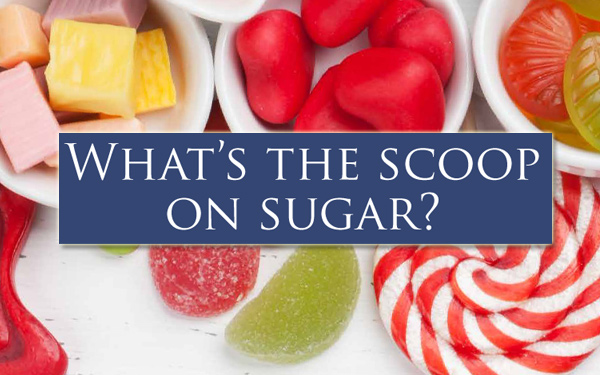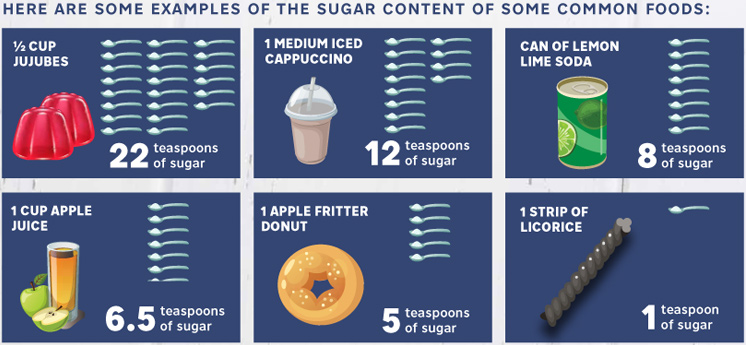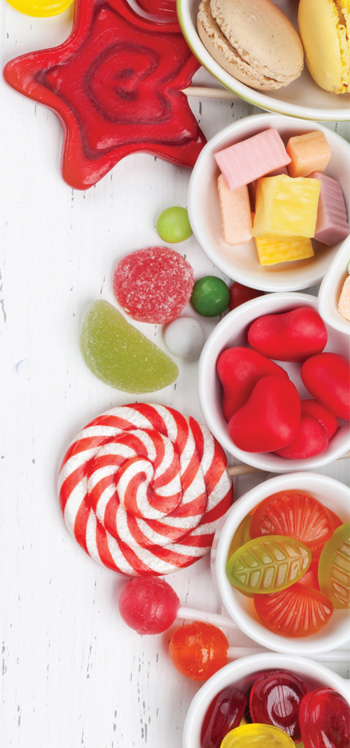What’s the scoop on sugar?

By June Martin, RD, CDE
It seems that sugar is at the top of everyone’s minds these days when it comes to nutrition and health. It’s been described as “the new smoking” and “as addictive as cocaine”. Neither of these claims is true. While most of us in North America probably consume more sugar than we should, it’s important to have a balanced discussion about sugar and health.
What is sugar?
Basically, sugar is a very simple source of carbohydrate. Table sugar is a small molecule that’s usually produced from sugar cane or sugar beets (sucrose). Other major sources of sugar in the diet include processed simple sugars such as corn syrup (you might see glucose fructose on a food label in Canada). Sugar is also found naturally in fruit (fructose) and milk (lactose). Too much added sugar is generally a health concern, leading to weight gain, contributing to obesity and diabetes and causing tooth decay. Diets that are high in processed sugars are often low in other nutrients and are described as “empty calories”.
Dietary sugar does not actually damage the kidneys unless your blood sugar levels rise. This can occur in diabetes. Diabetes is a major cause of kidney failure in North America.
How much is too much?
The World Health Organization recommends that added sugars make up no more than 10% of your total calories (roughly 50 grams or 12 teaspoons for most adults) and they state that a further reduction to below 5% (or roughly 25 grams or 6 teaspoons) would be beneficial. There is no recommended limit for naturally occurring sugars like those in an apple, but once that apple has been processed to fruit juice or dried fruit – it is considered a source of added sugar. So what does that actually mean when it comes to foods? A teaspoon of sugar contains about 4 grams of sugar.

How do you cut back on sugar?
Here are some strategies to reduce the sugar in your diet. Not sure what will work for you? Talk to the dietitian in your renal unit for more ideas.
Don’t drink your sugar! Beverages like sodas, energy drinks, specialty coffees and juices are loaded with sugar. Consider choosing sugar free alternatives or switching to water, plain iced tea or sparkling water.
Try cutting back gradually – if you add 2 teaspoons of sugar to your coffee in the morning, try cutting back to 1 ½ teaspoons for a few weeks and then keep going until your taste buds adjust!
Avoid heavily processed foods and beverages.
Try using less sugar in your recipes than they call for. Often, you can reduce the sugar by up to 25%. If the recipe calls for a liquid sugar like maple syrup or honey, try substituting 25% of it with applesauce.
Watch your portions. Try to satisfy your cravings with a small portion of something sweet.
Replace sugar with the artificial sweetener sucralose (Splenda™). One cup of Splenda is equal to one cup of sugar. Check out the carrot cake recipe to see how the sugar can be drastically reduced. Do not bake with other artificial sweeteners as the flavour might change.

